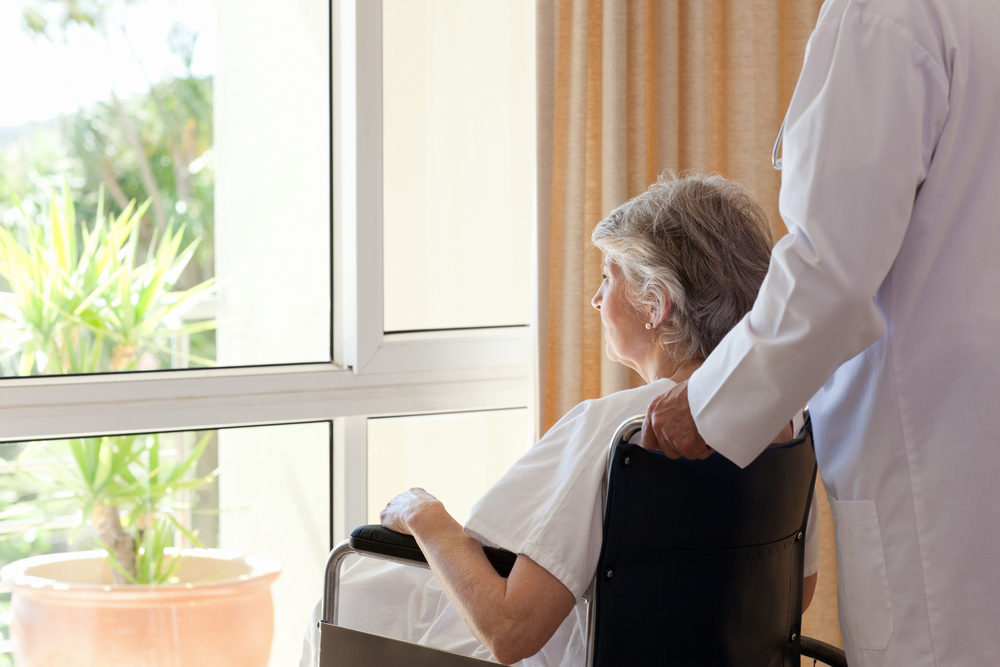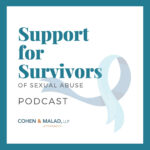
Attorneys for Victims of Nursing Home Sexual Abuse
Media reports often highlight instances of childhood sexual abuse. However, another vulnerable demographic, the elderly – particularly those who live in nursing homes and assisted living facilities – are also at risk of becoming victims of sexual abuse. Elder sexual abuse is defined similarly to childhood sexual abuse. Sexual contact, exposing of oneself, sharing obscene images, or taking inappropriate photos or videos of an elder without their consent are all forms of sexual abuse.
Was Your Loved One Sexually Abused? Click here to get help.
A number of factors can contribute to abuse in nursing home and assisted living facilities. Corporate business decisions and negligence, like failure to properly supervise staff or residents, failure to have an appropriate number of staff members per shift, and failure to conduct proper background checks on facility staff and caregivers, can create an environment where sexual abuse can occur. When these conditions exist, your loved ones are at a greater risk for injury, including sexual abuse.
National Statistics on Nursing Home Abuse
Nursing home sexual abuse can occur more often than many realize. It is the lesser common type of abuse that occurs in nursing home settings, with physical and emotional abuse ranking higher. Yet, many people do not suspect that their loved one could suffer sexual abuse in a nursing home setting. Consider a few statistics:
- About 0.7% of nursing home staff members admit to abusing residents in a sexual manner.
- Since 2000, more than 16,000 complaints of sexual abuse have been reported in long-term care treatment centers
- Women are nearly two-thirds more likely to suffer sexual abuse in a nursing home than men
One of the most worrisome factors is that it is believed most cases of sexual abuse in nursing homes go unreported. Many times, seniors or others in these settings are unable or afraid to voice what’s occurred to them. That makes it easier for such abuses to continue.
Nursing home sexual abuse lawyers at CohenMalad, LLP can work with you to provide a better level of support and guidance, helping you to learn what your legal rights are in situations like this. Do not wait to reach out for help.
View Our Videos on Sexual Abuse
Questions to Ask When Selecting a Nursing Home for a Loved One
If you are considering entering a nursing home yourself or placing a loved one here, it is very important to consider the risks of abuse. Nursing homes do not disclose this information openly, and often settlements occur without public knowledge. Be prepared. Ask a potential nursing home the following questions:
- Have there been any reported incidents of sexual abuse at the location?
- Does the location provide full criminal background checks on all people they hire?
- What type of pre-screening does the location do for all employees?
- What happens if there is a claim made against a person?
- What steps does the location have in place to prevent this type of abuse?
Asking these questions can help you to determine if the location has prepared to deal with sexual abuse as well as what the potential risks may be. If you suspect abuse is occurring, reach out to a nursing home sexual abuse lawyer to learn more about your rights. We can help you.
Risk Factors for Abuse
Who is most likely to suffer abuse in a nursing home setting? It could be anyone, but some people may be at a higher risk of doing so:
- They have trouble communicating.
- The individual is in a room by themselves.
- They suffer from mental health disorders, including dementia.
- The person is often alone with workers because they have mobility concerns.
- The family does not visit often or does so on a scheduled basis.
If you have been a victim of abuse or you believe your loved one has, reach out to a nursing home sexual abuse lawyer immediately for guidance. Let us provide compassion and guidance to help determine what has occurred.
Signs of Sexual Abuse
Elder victims of sexual abuse may show signs including bruising around the genital area, sexually-transmitted diseases, signs of post-traumatic stress disorder (PTSD), social or emotional withdrawal from others, panic attacks, and more. Family members may be hesitant to make accusations or follow up on comments made by an elderly person who suffers from dementia. However, it is important to ask questions and investigate if a facility resident says something out of the ordinary.
If you or a family member suspects that a loved one who resides in a nursing home or assisted living facility has been the victim of sexual abuse, it is important to take steps to determine if an assault did take place and get the proper treatment for your loved one. The trauma of sexual abuse can be substantial regardless of the age of the victim. It is important that all victims of sexual abuse have access to treatment and psychiatric therapy to help them deal with the impact of the trauma.
Types of Nursing Home Abuse
Sexual abuse in a nursing home can occur in many ways. This does not always mean a person was physically assaulted. Below are some examples of sexual abuse that can occur in a nursing home setting:
- Visual displays of sexually explicit content that are unwanted
- Flashing or nudity
- Physical abuse includes kissing, tickling, physical restraint, fondling, intercourse, oral sex, sodomy, enemas, excessive cleaning of the genitals, and other types of complaints
- Verbal abuse may include spoken or written words that express sexual content, including graphic sexual graphic descriptions, unwanted romantic advances, or sexual jokes
- Covert types of abuse may also occur and may include photographs, watching a person undress, or stalking
Signs of Abuse in a Loved One
How do you know your loved one is suffering abuse in a nursing home? Do not rely on your loved one to communicate to you that abuse is occurring. It is very common for people to be unable or unwilling to communicate this.
You may also have a hard time knowing that it is sexual abuse. Any type of abuse should not be tolerated. Look for signs like the following and then take action:
- Voiced concerns about specific people at the nursing home
- Pelvic injuries that are otherwise not explained
- Difficulty with walking, standing, or sitting
- Torn, damaged, bloody underwear
- Bruises on the inner thigh or genitals
- Bleeding from the anus or genitals
- Panic attacks and intense anxiety
- Social withdrawing
- Suicide attempts
- Suffering a sexually transmitted disease
These initial signs of sexual abuse may potentially accompany other forms of abuse. The key here is to take action if you think your loved one is suffering due to abuse in a nursing home. Our nursing home sexual abuse lawyer can help you. Do not wait to reach out for help.
Resources for Family Members Suspecting Abuse:
- Stop It Now
- RAINN
- National Institute on Aging – Elder Abuse
- The National Consumer Voice – Elder Abuse
Listen to our podcast! 
Recent Reports of Nursing Home Sex Abuse
Hacienda Healthcare Facility Will Now Stay Open After Pregnancy of Disabled Woman Reported- CNN, February 8, 2019
One day after deciding to close its facility, Hacienda Healthcare announced that it struck a deal with Arizona state officials to keep the facility open to continue to serve intellectually disabled patients. In December, Hacienda Healthcare was at the center of an investigation of sexual abuse after a 29-year old severely incapacitated patient gave birth. Authorities conducted an investigation that included the collection of DNA evidence of men who worked at the facility and found a match. Police arrested a 36-year old nurse whose results “matched the baby,” according to crime lab technicians.
Hacienda Healthcare stated that it made changes after the alleged sexual assault and will now work with state agencies to put together a “voluntary regulatory agreement with strong oversight and accountability measures that ensure safety and quality of care going forward for patients.”
A nurse is accused of impregnating a woman in a vegetative state who later gave birth – CNN, January 24, 2019
A Phoenix healthcare facility reported a woman who was in their care and diagnosed to be in a vegetative state gave birth to a baby in December. According to reports, no one at the facility was even aware that the woman was pregnant. The woman was 29 years old and had been a resident of the facility for over 20 years due. She has significant intellectual disabilities as a result of seizures early in her childhood.
Authorities conducted an investigation after the report of the birth and obtained search warrants and court orders to collect DNA evidence from men who worked at the facility. Police arrested a 36-year-old nurse based on DNA results that “matched the baby,” according to crime lab technicians. The nurse is being held in Maricopa County Jail awaiting his hearing.
Hacienda HealthCare to Close After Disabled Arizona Woman Was Impregnated- CNN, February 7, 2019
The Phoenix healthcare facility where a woman under their care gave birth in December is set to cease operations. This decision comes after authorities arrested a nurse employed by the facility after DNA evidence indicated that he was likely the father of the child. Caregivers at the facility claim they had no idea the 29-year-old woman was pregnant. The woman had been a resident of the facility for most of her life after suffering significant intellectual disabilities as a result of seizures during childhood.
The facility voted last week to close and is working on a transition plan for the 37 patients who are currently under care.
Lawsuit Filed Against Facility after Disabled Florida Woman Becomes Pregnant- CNN, January 2019
A Florida woman is suing her daughter’s former healthcare provider as well as a few of its employees. The mother alleges that her 23-year-old daughter, who is developmentally disabled, was raped, impregnated, and injured while in the care of Pensacola Cluster intermediate care facility.
Court records state employees of a school the 23-year-old attended observed behavioral changes and physical injuries, which included bruising on her hip. School employees reported the injuries to the healthcare facility and made several attempts to ensure the woman was treated for her injuries. After the third contact, Pensacola Cluster ordered an x-ray and discovered the woman suffered a broken hip. During a pre-surgery exam, medical authorities discovered that the woman was pregnant. At some point during the pregnancy, the woman did suffer a miscarriage.
Other Types Of Sexual Abuse Cases We Handle
We are proud to help families heal through the legal pursuit of sexual abuse claims. Here are a few more specific examples of cases we’ve handled.
- Adult on child sexual abuse
- Daycare sexual abuse
- Child-on-child sexual abuse
- Church sexual abuse
- Residential treatment center sexual abuse
- School or sports organization sexual abuse
- Youth Sports Sexual Abuse
Claims Process
The claims process in a nursing home abuse situation is often quite intense and takes a significant amount of evidence gathering. Our team will present your case with all of its details to the administration to file a complaint. We will stay with you throughout this process. If necessary, we will go to court to prove what’s occurred and to help you to obtain compensation for your losses.
Do not assume you have no rights. Let us help you find out what can be done. Contact CohenMalad, LLP to learn more about those rights and to speak to a nursing home sexual abuse lawyer.
Nursing Home Sexual Abuse Attorneys
If you, your loved one, or someone else you know is a victim of sexual abuse or assault, contact us. Our attorneys have been trained by mental health professionals so as to not revictimize the Plaintiff when telling his or her story. Our attorneys have experience handling sexual abuse claims against residential facilities, including nursing homes and assisted living facilities, and can help your family on the path to healing. We understand the sensitive nature of this type of lawsuit and prioritize our clients’ privacy and trust while fighting to get them the compensation they need to assist them in healing and coping with sexual abuse.




